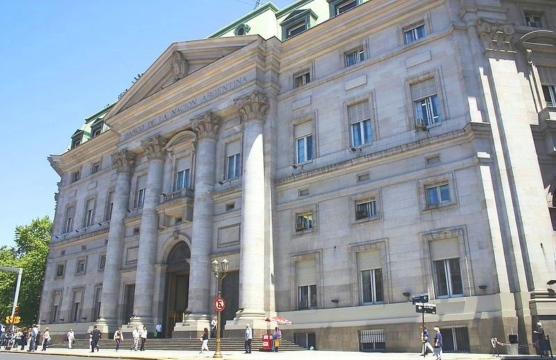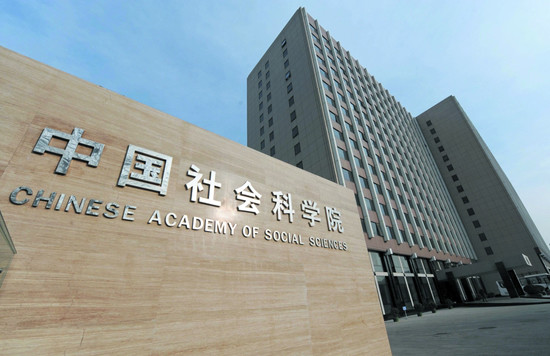Chinese Reactions to the Brazil Protests
Protests in Brazil are currently the focus of discussion and debate within Chinese government institutions.
On Tuesday, April 7, the Inter-American Dialogue and Grupo de Paises Productores del Sur hosted an in-depth discussion on global food security in Washington, DC. The Dialogue and GPS assembled representatives from many of key international agricultural and trade-related organizations to discuss the interests of net food importers and exporters and a plausible policy agenda for addressing global food shortages and nutritional deficiencies.
Shenggen Fan of the International Food Policy Research Institute (IFPRI) opened the event with an overview of the many challenges to achieving global food security, including shifting demographics, rising incomes and demand, food price spikes and volatility, higher natural resource constraints, climate change, and food-fuel competition. In addition to the various factors affecting global food supply, Fan explained that nutritional deficiencies are prevalent even in countries that are relatively food-stable. Malnutrition is a critical challenge in Central America, for example, even as obesity rates rise.
As home to several of the world’s principal exporters of coarse grains, Latin America will play a critical role in addressing global food insecurity in the coming years, Fan argued. However, this will require considerable agricultural innovation facilitated by public and private sector investment in research and development. Trade policy is also a critical factor. Fan remarked that harmful trade policies, such as export bans, hurt the poor and hinder efficiency of agricultural markets.
The discussion continued with analysis of the dilemmas and strategies of large net food importers. GPS’s Martin Pineiro examined the various policy options employed by major food importers following spikes in food prices and food price volatility in 2008, noting that many countries have adopted protective measures that negatively affect global food supply. Other major net food importers are actively seeking to acquire overseas assets in support of domestic food security. The Dialogue’s China program director, Margaret Myers, examined China’s food security objectives, suggesting that Asian nation’s interest in overseas land purchase is waning. Myers argued that the Chinese government is instead supporting overseas acquisition of assets across the industry supply chain in order to ensure agricultural supply and to more effectively control food pricing.
With the concerns of net food importers in mind, GPS’s Carlos Perez del Castillo presented a possible agenda for addressing global food insecurity. The proposal calls for alignment, through negotiations in the WTO, of the long-term objectives of net food exporters and net food importing countries in a reliable, rule-based framework. This framework would presumably reduce reliance on distortionary trade policy, and thereby improve overall conditions for global food security.
Ricardo Melendez, CEO of the Geneva-based International Centre for Trade and Sustainable Development, further elaborated the “new normal” in global agricultural markets, including growing supply constraints and price stabilization at a higher plateau. Melendez also addressed the need for trade-related reform in support of global food security. Agricultural price spikes, he noted, have exposed gaps in WTO rules on agricultural trade, as clearly evidenced by the prevalence of agricultural export restrictions in recent years.
Despite general agreement on the need to better incorporate food security challenges in global governance frameworks, Melendez and other contributors also discussed the many challenges that Perez del Castillo’s proposal would likely encounter in the WTO or in other international organizations. Above all, domestic politics will be a considerable obstacle toward establishing new rules for agricultural trade. The agendas of international organizations like the WTO are also already overloaded, according to participants.
Participants in a public session that afternoon nonetheless called for a new set of trade regulations and for other policies that are supportive of global food security. Michael Moore, New Zealand’s former prime minister, and former director-general of the WTO commented on the negative effects of distortionary trade policy on global food security. Moore mentioned, in particular, the need to prevent widespread use of agricultural export restrictions. Ricardo Rodrigues, Brazil’s former minister of agriculture, called for more extensive discussion of global food security in the Doha Round. And Nancy Stetson from the US State Department remarked on the many ways in which the global community can work together to address what will be an increasingly critical food security environment.
China-LAC Agricultural Engagement
Protests in Brazil are currently the focus of discussion and debate within Chinese government institutions.
The Fernández administration’s refusal to comply with a US court order to pay holdout hedge funds has once again landed Argentina in default.
Who in China is advising on energy engagement with Latin America?

